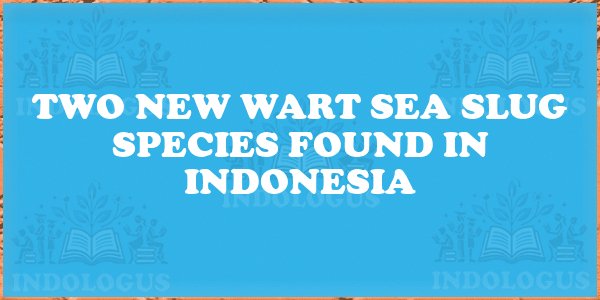Recent research in North Sulawesi, Indonesia, revealed two new wart sea slug species – Phyllidia ovata and Phyllidia fontjei. The discovery highlights the significance of citizen science and global cooperation in uncovering hidden marine species.
Discovery and Identification
- Five women scientists from Germany, Indonesia, and Wales identified the new species.
- Phyllidia ovata was identified after 23 years of underwater photography records across various countries.
- Phyllidia fontjei, smaller and harder to find, was mainly documented in Indonesia, Malaysia, and the Andaman Sea.
Characteristics of Phyllidia ovata
- Medium-sized, reaching up to 5 cm with an egg-like shape and distinctive pattern.
- Unique morphology and vibrant appearance set it apart from other sea slugs.
Characteristics of Phyllidia fontjei
- Much smaller, with a maximum size of 16 mm, named after Dr Fontje Kaligis.
- Described using a single holotype specimen and found mainly in the Andaman Sea.
Role of Citizen Science
- Non-professional enthusiasts’ contributions through platforms like iNaturalist and Facebook were crucial in documenting marine life.
- Citizen science helped in identifying new species and understanding their distribution.
Significance for Marine Biodiversity
- North Sulawesi harbors around 350 sea slug species, with nearly 100 yet to be discovered.
- These discoveries emphasize the rich but still unexplored marine biodiversity of the region.
- Wart sea slugs play a vital role in ecological studies and marine conservation due to their chemical defenses and vivid colors.
Key Takeaways for Competitive Exams
- Recent discovery of two new wart sea slug species, Phyllidia ovata and Phyllidia fontjei, in North Sulawesi, Indonesia.
- Importance of citizen science and international collaboration in uncovering hidden marine species.
- Significance of marine biodiversity in the Indo-Pacific region and the role of sea slugs in ecological studies and conservation.



